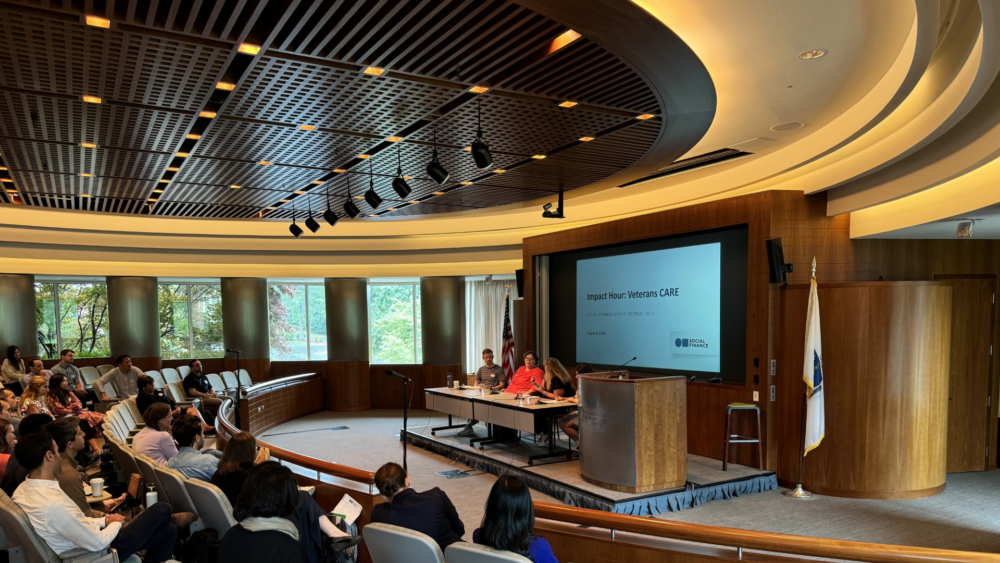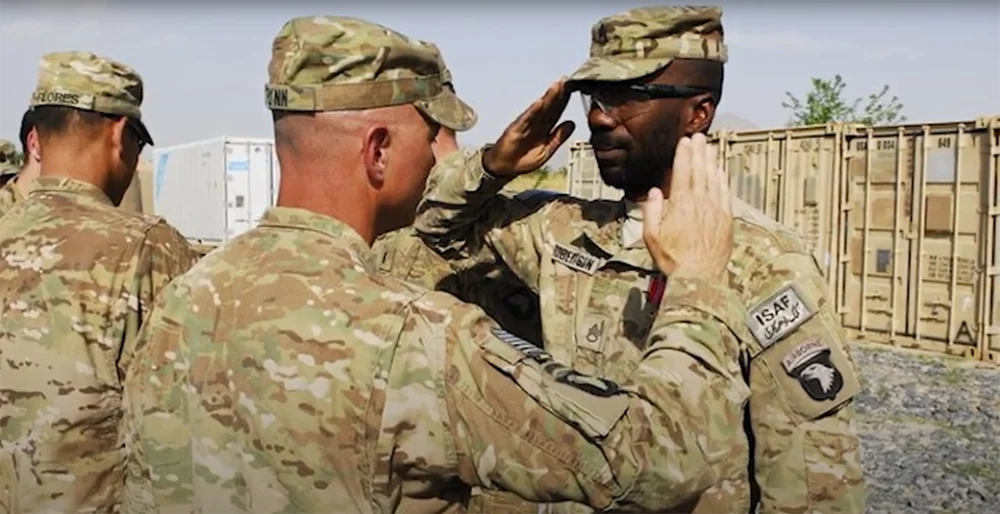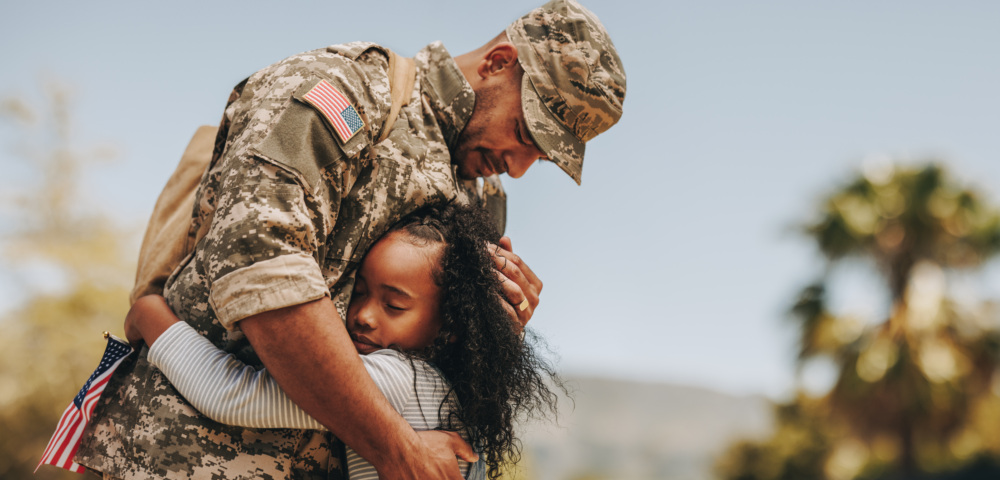

Public Sector Solutions, Workforce & Economic Mobility, Results-Based Funding
Key Takeaway
Since 2018, Social Finance has supported the design and management of Veterans CARE, an outcomes-based partnership helping veterans obtain compatible employment. In August of 2024, we hosted a panel discussion exploring the program’s past, current, and future impact.
U.S. military veterans may face challenges when returning to civilian life, from navigating service-linked physical and mental health conditions to rebuilding connections with family and friends. One often overlooked element of this journey is finding work that meets their interests, strengths, and goals. But in Massachusetts, dedicated employment specialists are working to address this reintegration gap.
300+
Veterans served by Veterans CARE
Two of these specialists, Kelly Durkee-Erwin and Alexis Greenan, joined Social Finance in August 2024 to talk about their work as part of Veterans Coordinated Approach to Recovery and Employment (Veterans CARE), a program that helps former service members obtain and maintain compatible employment.
Veterans CARE is a collaboration between the Massachusetts Executive Office of Veterans Services (EOVS), which funds the program; VA Boston Healthcare System, which delivers services; the Tuscaloosa Research and Education Advancement Corporation (TREAC), which provides expert guidance on supported employment services for veterans; and Social Finance, which manages the program and evaluates veterans’ employment outcomes.
Here are three takeaways the event:
1. Getting a good job can improve every facet of a veteran’s life.
For veterans transitioning back into the civilian world, a job is much more than a way to make a living—it’s the foundation that supports all aspects of post-service life.
“When you help people get back to work, you help them with their self-esteem and this can benefit their relationships with friends, family, spouses, and children,” Durkee-Erwin said. “And they’re less anxious about finances, so they can pay for household expenses or get their car repaired, for example.”
Durkee-Erwin explained that the service members who come to Veterans CARE, either through self-referral or health care provider referral, are often burdened by self-doubt. Helping them identify their skills and discover ways to apply those skills in a civilian context can help mitigate the impact of trauma, build confidence, and boost self-esteem.
2. Career compatibility is essential to veteran success.
Veterans CARE focuses on helping veterans find meaningful work that taps into their talents. Many veterans need to navigate post-military life with service-related injuries. Employment specialists work with veterans closely to find jobs that are consistent with their interests, abilities, and strengths.
“I’m working with a veteran who has a number of health concerns but is very resilient. I’m focusing on finding a work environment that interests him, where he can put his skills to use, and where he will provide value to the employer,” Greenan said.
Durkee-Erwin, Greenan, and the other employment specialists at Veterans CARE aim to match veterans with opportunities that are not only compatible with their psychological and physical needs, but also empower them to make the most of their skills.
The program leverages an evidence-based model of supported employment called individual placement and support (IPS), a highly individualized approach that prioritizes veteran job preferences and integrates employment support with clinical mental health care, as needed.
Durkee-Erwin said veterans often come to the program with skills and competencies developed in the military that translate directly to the civilian workforce, including an orientation toward leadership and passion for human service.
Of course, preference plays a big role in how the Veterans CARE team sources opportunities for participating veterans. Durkee-Erwin said she has helped former service members enter every field imaginable, including, in one veteran’s case, beekeeping. “I found a beekeeping expert to support him and now he’s got a farm in Western Massachusetts,” she explained. “He’s happy as a clam.”
The program’s use of IPS differentiates it from other vocational rehabilitation initiatives and ultimately increases the likelihood of positive outcomes.
When you help people get back to work, you help them with their self-esteem and this can benefit their relationships with friends, family, spouses, and children.Kelly Durkee-Erwin, Veterans CARE Employment Specialist
3. More veterans could benefit from individualized employment support
Between 50% and 60% of the veterans in the program maintain compatible, competitive employment. This is a good rate of success and comparable to other IPS initiatives. However, one of the roadblocks to reaching more former service members in need of help is program scale.
To effectively support veterans, employment specialists must prioritize the unique interests, skills, and goals of each service member. This requires curiosity, time, and eagerness to learn about and identify job opportunities in industries as wide-ranging as health care, finance, retail, arts, agriculture, and the gig economy.
Due to the highly individualized nature of this support, employment specialists’ caseloads are capped at relatively low numbers and veterans must sometimes have to wait to begin their journeys in the program. Additional staff would enable Veterans CARE to reach more veterans and reduce wait times.
Still, Durkee-Erwin and Greenan expressed enthusiasm about the future of the program and its impact on veterans in their reintegration journeys.
Contact Matt Mellon to learn more about Veterans CARE →
Related Insight

Impact, Partnership Drive Massachusetts Program for Veterans with PTSD, MST
The Veteran's CARE launch anniversary offers an opportunity for reflection centered on two elements critical to the Social Finance mission that have made the program successful: the pursuit of measurable impact and the creation of…

Veterans CARE Project Summary
Following sustained, strong veteran employment outcomes throughout this period, the Commonwealth of Massachusetts funded a 15-month extension of Veterans CARE beginning in October 2021 and continuing through at least December 2022.